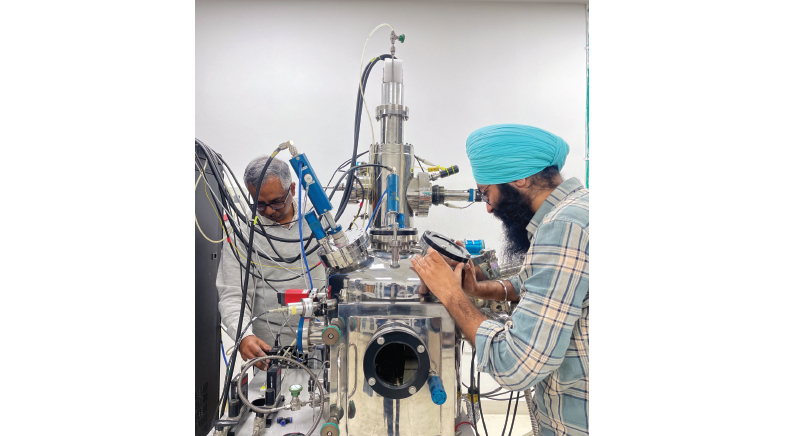What are the jobs of the future?
-
- from Shaastra :: vol 04 issue 01 :: Feb 2025

A new report from the World Economic Forum highlights the trends that will impact jobs from now to 2030.
If you're concerned about the future of your job in these changing times, your fears aren't unfounded. According to a World Economic Forum report, 39% of current job skills will become outdated by 2030. The report, titled 'Future of Jobs 2025' (bit.ly/Jobs-2025-WEF), says that factors like technological change, geoeconomic fragmentation, economic uncertainty, demographic shifts and green transition will transform future job markets.
Based on the perspectives of over 1,000 leading global employers from 22 industry clusters and 55 economies of the world, the report notes that advancements in technologies like AI, information processing, robotics and automation are likely to be "transformative" and drive a demand for technology-related skills. The fastest-growing skill is AI and big data, followed by networks and cybersecurity.
Network and cybersecurity-related jobs are also getting a boost from the rising geopolitical tensions and economic unrest, fuelling demand for security-related job roles. The growing elderly population in developed nations is increasing the demand for healthcare jobs, especially in nursing. Similarly, developing countries with more working-age populations are expected to see a rise in education-related professions. As the sustainability agenda gains momentum, the demand for job roles like renewable energy engineers, environmental engineers, and electric and autonomous vehicle specialists is also growing. Frontline jobs like farm workers, delivery drivers, construction workers, salespersons and food-processing workers are to see a rise in volumes during 2025-2030.
Analytical thinking, resilience, flexibility, leadership and creative thinking are the skills desired by employers.
The new job roles will create an additional 14% of today's total employment (170 million jobs) and are set to displace 8% (92 million) of the existing jobs. This begs the question of whether our higher education is making changes in existing curriculum or introducing new programmes to make students ready for future jobs. "A more T or π shaped curriculum is required, where you have a broader skill set, but you also develop a depth in one (T) or two (π) sectors at least," suggests V. Ramgopal Rao, Group Vice-Chancellor for the Birla Institute of Technology & Science (BITS) Pilani.
Rao cautions that while globally the demand is good, the Indian job market doesn't offer many opportunities for students graduating with such programmes like robotics, automation and quantum technologies.
Analytical thinking, resilience, flexibility, leadership and creative thinking are the core skills desired by employers going forward, according to the report. Rao agrees: "Students now need to be also trained for leadership skills and creativity as they are going to manage people who are managing these machines." To be a significant part of the global workforce, India's higher education system needs to change and adapt, which would require significant investment, says Rao.
Have a
story idea?
Tell us.
Do you have a recent research paper or an idea for a science/technology-themed article that you'd like to tell us about?
GET IN TOUCH














